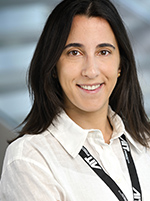Quantum Secure Networks Partnership
The Quantum Secure Networks Partnership (QSNP) project aims at creating a sustainable European ecosystem in quantum cryptography and communication. A majority of its partners, which include world-leading academic groups, research and technology organizations (RTOs), quantum component and system spin-offs, cybersecurity providers, integrators, and telecommunication operators, were members of the European Quantum Flagship projects CIVIQ, UNIQORN and QRANGE. QSNP thus gathers the knowhow and expertise from all technology development phases, ranging from innovative designs to development of prototypes for field trials. QSNP is structured around three main Science and Technology (ST) pillars. The first two pillars, “Next Generation Protocols” and “Integration”, focus on frontier research and innovation, led mostly by academic partners and RTOs. The third ST pillar “Use cases and Applications” aims at expanding the industrial and economic impact of QSN technologies and is mostly driven by companies. In order to achieve the specific objectives within each pillar and ensure that know-how transfer and synergy between them are coherent and effective, QSNP has established ST activities corresponding to the three main layers of the technology value chain, “Components and Systems”, “Networks” and “Cryptography and Security”. This framework will allow achieving the ultimate objective of developing quantum communication technology for critical European infrastructures, such as EuroQCI, as well as for the private information and communication technology (ICT) sectors. QSNP will contribute to the European sovereignty in quantum technology for cybersecurity. Additionally, it will generate significant economic benefits to the whole society, including training new generations of scientists and engineers, as well as creating high-tech jobs in the rapidly growing quantum industry.
- Partner: FUNDACIO INSTITUT DE CIENCIES FOTONIQUES (Koordinator), CENTRE NATIONAL DE LA RECHERCHE SCIENTIFIQUE, INSTITUT POLYTECHNIQUE DE PARIS, DANMARKS TEKNISKE UNIVERSITET, UNIVERSIDAD POLITECNICA DE MADRID, FRIEDRICH-ALEXANDER-UNIVERSITAET ERLANGEN-NUERNDE, TECHNISCHE UNIVERSITEIT DELFT, UNIVERSITA DEGLI STUDI DI PADOVA, AIT AUSTRIAN INSTITUTE OF TECHNOLOGY GMBH, TECHNISCHE UNIVERSITEIT EINDHOVEN, UNIVERZITA PALACKEHO V OLOMOUCI, INSTITUTO SUPERIOR TECNICO, UNIVERSIDAD DE VIGO, KATHOLIEKE UNIVERSITEIT LEUVEN, UNIVERSITAT WIEN, UNIVERSITE LIBRE DE BRUXELLES, UNIWERSYTET WARSZAWSKI, UNIVERSITA TA MALTA, COMMISSARIAT A L ENERGIE ATOMIQUE ET AUX ENERGIESFR, UNIVERSITAET PADERBORN, INSTITUT NATIONAL DE RECHERCHE EN INFORMATIQUE, FRAUNHOFER GESELLSCHAFT ZUR FORDERUNG DER ANG, INSTITUTE OF COMMUNICATION AND COMPUTER SYSTEM, INTERUNIVERSITAIR MICRO-ELECTRONICA CENTRUM, CRYPTONEXT, NEXTWORKS, THINKQUANTUM SRL, QUSIDE TECHNOLOGIES SL, MICRO PHOTON DEVICES SRL, LUXQUANTA TECHNOLOGIES SL, NOKIA NETWORKS FRANCE, DEUTSCHE TELEKOM TECHNIK GMBH, TELEFONICA INVESTIGACION Y DESARROLLO, TELECOM ITALIA SPA, ORANGE SA
- Funding: Quantum encryption and future quantum network technologies (SGA)
- Project duration: 03/2023-08/2026



